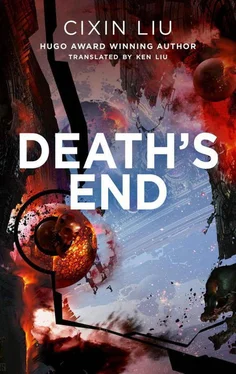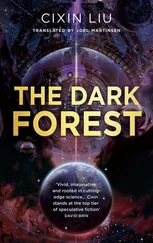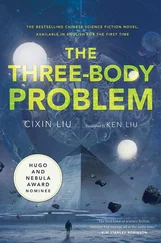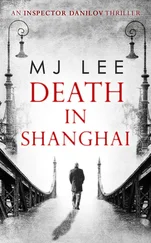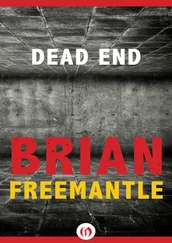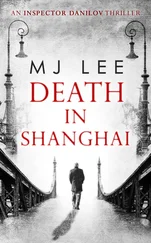But for Tianming, the whole world seemed brighter: Cheng Xin.
—————
Tianming could feel the dampness on his chest—Cheng Xin’s tears had soaked through his clothes.
When he first saw her, he thought she hadn’t changed at all. But now he noticed that her hair was shorter—it no longer draped over her shoulders, but stopped at her neck. The ends curled prettily. He still didn’t have the courage to reach out and touch the hair that he had long yearned for.
I’m really useless. But he felt like he was in heaven.
The silence seemed like the peace of paradise, and Tianming wanted that silence to last. You can’t save me, he said to her in his mind. I will listen to you and not seek euthanasia. But I’m going to end up in the same place anyway. I hope you take the star I gave you and find happiness.
Cheng Xin seemed to hear this inner speech. She lifted her head. It was the first time their eyes were this close, closer than he had ever dared to dream. Her eyes, made even more beautiful by her tears, broke his heart.
But when she finally spoke, what she said was not at all what he expected.
“Tianming, did you know that the euthanasia law was passed specifically for you?”
Crisis Era, Years 1–4 Cheng Xin
The start of the Trisolar Crisis coincided with Cheng Xin’s completion of her graduate studies, and she was selected to join the task force working on the design of the propulsion system for the next generation of Long March rockets. To others, this seemed like the perfect job: important and high profile.
But Cheng Xin had lost the enthusiasm for her chosen profession. Gradually, she had come to see chemical rockets as similar to the giant smokestacks of the early Industrial Age. Poets back then had praised those forests of smokestacks, thinking that they were the same as industrial civilization. People now praised rockets the same way, thinking they represented the Space Age. But if humanity relied on chemical rockets, they might never become a true spacefaring race.
The Trisolar Crisis simply highlighted this fact. Trying to build a Solar System defense system based on chemical rockets was pure lunacy. Cheng Xin had made an effort to keep her options open by picking some classes in nuclear propulsion. After the Crisis, all aspects of work within the aerospace system accelerated, and even the long-delayed first-generation space plane project was given the go-ahead. Her task force was also charged with designing the prototype for the engines that would be used by the plane in spaceflight. Professionally, Cheng Xin’s future seemed bright: Her abilities were recognized, and in China’s aerospace system, most chief engineers began their careers in propulsion design. But since she believed chemical rocketry was yesterday’s technology, she didn’t think she would get very far in the long term. Heading in the wrong direction was worse than doing nothing at all, but her job demanded her complete focus and attention. She was deeply frustrated.
Then came an opportunity for her to leave chemical rockets behind. The United Nations began to create all sorts of agencies related to planetary defense. Unlike UN agencies from the past, these new agencies reported directly to the PDC, and were staffed by experts from various nations. The Chinese aerospace system sent many people to these agencies. A high-level official offered Cheng Xin a new position: Aide to the director of the Technology Planning Center for the PDC Strategic Intelligence Agency. Humanity’s intelligence-gathering work against the Trisolarans had so far focused on the ETO, but the PDC Strategic Intelligence Agency, or PIA, would focus their efforts directly on the Trisolaran Fleet and the home world of Trisolaris itself. They needed people with strong backgrounds in the technical aspects of aerospace technology.
Cheng Xin took the job without hesitation.
—————
The PIA Headquarters was located in an old six-story building not far from the UN Headquarters. Dating from the end of the eighteenth century, the building was thick and well-built, like a solid block of granite. When Cheng Xin entered it for the first time after her trans-Pacific flight, she felt a chill, as though entering a castle. The place wasn’t at all what she had expected from an intelligence agency for the whole world; it reminded her more of a place where byzantine plots were hatched through whispers.
The building was mostly empty; she was among the first to report for duty. In an office full of unassembled furniture and just-unsealed cardboard boxes, she met her boss, PIA’s Technology Planning Center director.
Mikhail Vadimov was in his forties, muscular, tall, and spoke English with a heavy Russian accent. It took a few moments before Cheng Xin even realized that he was speaking English. He sat on a cardboard box and complained to her that he had worked in the aerospace industry for more than a dozen years and had no need for any technical assistance. Every country was eager to fill the PIA with its own people, but much less willing to give cold, hard cash. Then he seemed to realize that he was talking to a hopeful young woman who was growing rather dejected from his speech, and tried to comfort her by saying: “If this agency manages to make history—a big possibility, even if it probably won’t be very good history—we two will be remembered as the first to show up!”
Cheng Xin was cheered by the fact that she and her boss had both worked in aerospace. She asked Vadimov what he had worked on. He carelessly mentioned a stint on the Buran spacecraft; then that he’d served as the executive chief designer for a certain cargo-carrying spaceship; but after that, his explanations turned vague. He claimed that he had done a couple of years in diplomacy, then entered “some department” that “did the same kinds of things we do now.”
“It’s best if you don’t probe too much into the employment histories of your future colleagues, okay?” Vadimov said. “The chief is here also. His office is upstairs. You should swing by and say hi, but don’t take up too much of his time.”
As soon as Cheng Xin walked into the PIA chief’s spacious office, she was greeted by the strong smell of cigar smoke. A large painting hung on the wall. A leaden sky and the dim, snow-covered ground took up most of the painting; in the distance, where the clouds met the snow, a few dark shapes lurked. A closer examination revealed them to be dirty buildings, most of them one-story clapboard houses mixed with a few European-style houses with two or three stories. Based on the shape of the river in the foreground and other hints in the geography, this was a portrait of New York at the beginning of the eighteenth century. The overwhelming impression given off by the painting was coldness, which Cheng Xin thought fit the person sitting under the painting rather well.
Next to the large painting was a smaller picture. The main subject in the painting was an ancient sword with a golden cross guard and a bright, shining blade, held in a hand enclosed in bronze gauntlets—only the forearm was shown. The hand was lifting the sword to pick up a wreath woven from red, white, and yellow flowers floating over the water. In contrast to the larger painting, this picture was bright and colorful, but it nonetheless radiated eeriness. Cheng Xin noticed that bloodstains covered the white flowers in the wreath.
PIA Chief Thomas Wade, an American, was far younger than Cheng Xin had expected—he looked younger than Vadimov. He was also more handsome, with very classical features. Later, she would conclude that the classical appearance came mostly from Wade’s expressionless face, like a cold, lifeless statue transplanted out of the cold painting behind him. Wade didn’t look busy—the desk in front of him was completely empty, with no sign of a computer or paper documents. He glanced up as she entered, but returned to contemplating the cigar in his hand almost right away.
Читать дальше
